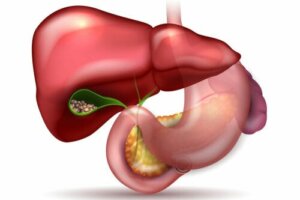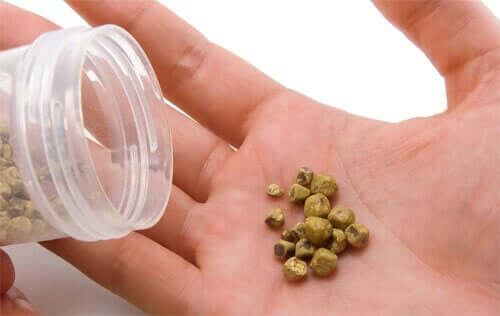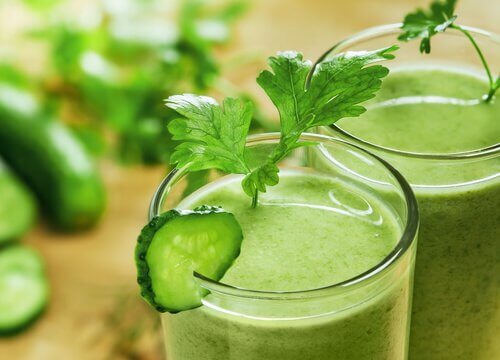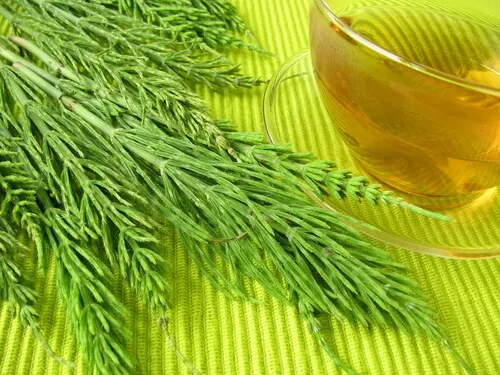Medicinal Plants to Treat Gallstones


Written and verified by psychologist Valeria Sabater
Those who have suffered from gallstones know just how much pain they cause. The gallbladder is a small organ that holds bile, digests fats, and serves as an ally to the liver. How should you take care of it to avoid suffering from gallstones? We explain which medicinal plants can help treat gallstones.
What are gallstones and how do they form?

Gallstones can appear when we least expect them. In order to prevent them, experts explain that we must follow proper dietary guidelines and, above all, take care of our cholesterol index. When we’re not carrying out digestion, bile remains in the gallbladder waiting for when it needs to be used again in the intestine to digest food.
However, when there’s too much cholesterol, small crystals are formed in the gallbladder, which eventually harden to become stones – the famous gallstones. We’ll explain what medicinal plants can help to treat gallstones in this article.
Discover more tips: Read These Diet Tips to Prevent Gallstones
Medicinal plants to prevent and treat gallstones
1. Parsley
This plant is easy to buy and is an excellent ally for both the kidneys, liver, and gallbladder. It acts as a good diuretic and facilitator to remove the grit from these organs involved in digestion. It’s a good filtering and purifying agent, and it’s common to take it in teas throughout the day.
It’s enough to take two cups a day – you just have to bring to a boil two or three sprigs and allow it to rest. Just add a little lemon juice to taste.
2. A nettle remedy
This wonder of nature is available to anyone. Nettle is antispasmodic, sedative and also diuretic. As a result, it has been used since ancient times to prevent and treat gallstones and kidney stones. It’s able to help to dissolve them, and helps to look after our digestive system and excretion.
We recommend that you take two cups of nettle tea a day.
3. The magical effect of dandelion
This plant provides a wonderful and very useful diuretic effect in our bodies, allowing us to eliminate toxins and harmful elements in the body. Dandelion also acts as a good purifier and facilitator for the decomposition of gallstones.
In addition, many people use it as a treatment for diabetes, uric acid, or cholesterol. Surely you don’t want to miss out on it! Remember to take this infusion after your main meals.
4. Horsetail
Do you know all about the benefits of horsetail? It has minerals and vitamins, is diuretic and anti-inflammatory, and helps to reduce inflammation and infections in the urinary organs. Because of this, it’s an effective remedy to treat gallstones. You can find horsetail in natural stores. It isn’t expensive and has many beneficial uses and properties.
Continue reading about this plant: What is Horsetail and What is it Good For?
5. Infusion of mint and fennel
This infusion is ideal to take every morning. It’ll give you a very good dose of antioxidant, anti-inflammatory, sedative, and diuretic elements. It is, therefore, a very special and successful combination for the gallbladder and liver. Because of this, experts recommend two cups a day, one at breakfast and one after lunch.
Remember to add a little lemon juice in these infusions, as vitamin C is an ingredient that will also help us to eliminate toxins and strengthen our immune systems.
More tips to prevent gallstones
These medicinal plants alone won’t eliminate our gallstones; they’re a complement and a way to prevent them. Your doctor will always be the one to give you the correct guidelines to follow to help to eliminate them. However, there are also ways of preventing them in the first place – follow these tips:
- Increase your intake of vitamin C
- Eat lots of fresh vegetables, especially artichokes, watercress, beets, and radishes. These are very healthy for the gallbladder.
- Drink plenty of water, as well as natural pineapple, orange, grapefruit, and mango juices. This is in addition to the infusions that we’ve brought you in this article.
- Reduce your intake of dairy products, fats, sausages, and refined flours.
- Increase how many cereals you eat, and take them together with apples. Together, they have a wonderful cleansing effect.
- Take a spoonful of olive oil in the morning.
- Get good regular exercise.
All cited sources were thoroughly reviewed by our team to ensure their quality, reliability, currency, and validity. The bibliography of this article was considered reliable and of academic or scientific accuracy.
- Appiah, S., Revitt, M., Jones, H., Vu, M., Simmonds, M., & Bell, C. (2017). Antiinflammatory and hepatoprotective medicinal herbs as potential substitutes for bear bile. In International review of neurobiology (Vol. 135, pp. 149-180). Academic Press. https://www.sciencedirect.com/science/article/pii/S007477421730017X
- Carneiro, D. M., Freire, R. C., Honório, T. C. D. D., Zoghaib, I., Cardoso, F. F. D. S. E. S., Tresvenzol, L. M. F., … Cunha, L. C. Da. (2014). Randomized, double-blind clinical trial to assess the acute diuretic effect of equisetum arvense (field horsetail) in healthy volunteers. Evidence-Based Complementary and Alternative Medicine. https://doi.org/10.1155/2014/760683
- Kreydiyyeh, S. I., & Usta, J. (2002). Diuretic effect and mechanism of action of parsley. Journal of ethnopharmacology, 79(3), 353-357. https://www.sciencedirect.com/science/article/pii/S0378874101004081
- Sanchez, J. C. (2016). Litiasis biliar. Revista Médica Sinergia, 1(1), 12-15. http://revistamedicasinergia.com/index.php/rms/article/view/14
- Singh, A., Malhotra, S., & Subban, R. (2008). Dandelion (Taraxacum officinale)-hepatoprotective herb with therapeutic potential. Pharmacognosy Reviews, 2(3), 163. https://www.phcogrev.com/sites/default/files/PhcogRev-2-3-163.pdf
This text is provided for informational purposes only and does not replace consultation with a professional. If in doubt, consult your specialist.










